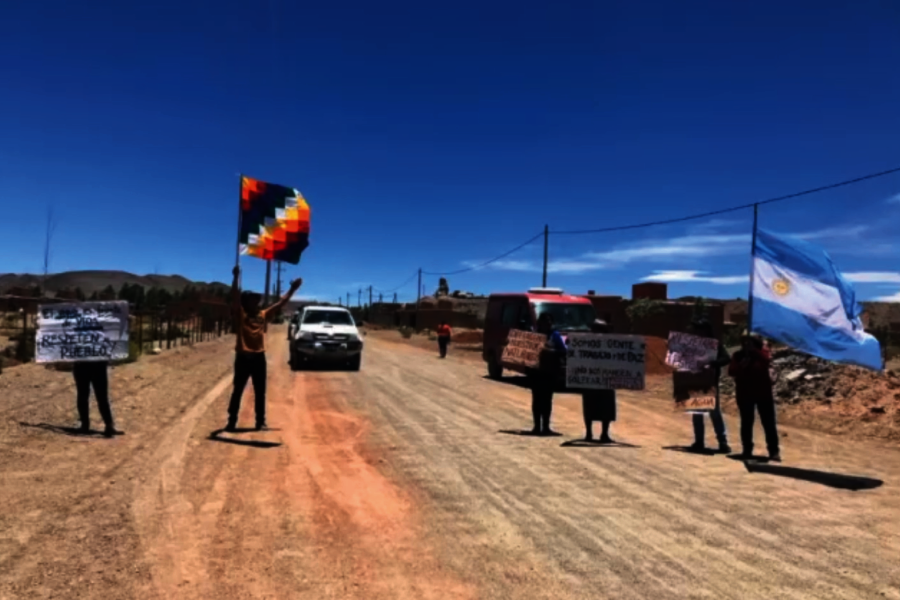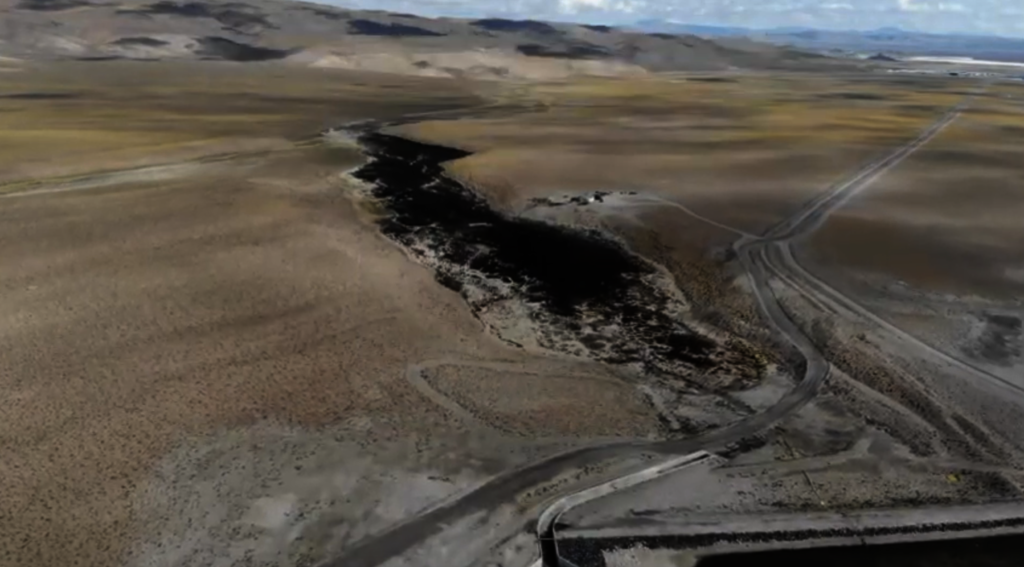By Fondo de Mujeres del Sur | In close collaboration with the activists
In Antofagasta, Catamarca province, lithium extraction puts high-altitude wetlands in La Puna area at risk. We share a video made with Luciana, a member of the organisation called Antofagasta por el Agua y los Salares, to share more about how they work to defend water and life.
We want to highlight the importance of the work that organisations such as Antofagasta por el Agua y los Salares (Antofagasta for Water and Salt Flats) carry out with communities. This group provides resistance support as well as technical legal support in order to protect the territory and its most precious resources: water and life. Wetlands are areas that are permanently or intermittently flooded and where the physical, plant and animal characteristics are determined by water. Almost 40% of the world's biodiversity is found in wetlands, and they are essential for the planet's ecological balance. ¹
Unfortunately, there is an overall lack of information about these ecosystems, and there are many more than is generally believed. Specifically, in Argentina there are six large wetland regions: Cuenca del Plata, Chaco, Pampas, Patagonia, Puna and the Patagonian Coastal Area, which make up 600,000 km². Together they represent 21.5% of the total area of Argentina.¹
In the Antofagasta region, in the province of Catamarca, the High Andean wetland of La Puna has particular climatic conditions that endow it with immense natural and mineral diversity. The wetlands are underground along with 90% of the water found in La Puna. However, extractivist activity puts the ecological balance and water sources at risk.
“The great problem faced in Antofagasta is lithium mega-mining. The advance on the salt flats is horrific and causes a high environmental and social impact because millions of litres of fresh and salt water are extracted that cannot be recovered," says Luciana, environmental defender from Antofagasta por el Agua y los Salares.
¹ Leydehumedalesya.com - https://www.leydehumedalesya.org
Links:
Project reports on GlobalGiving are posted directly to globalgiving.org by Project Leaders as they are completed, generally every 3-4 months. To protect the integrity of these documents, GlobalGiving does not alter them; therefore you may find some language or formatting issues.
If you donate to this project or have donated to this project, you can receive an email when this project posts a report. You can also subscribe for reports without donating.
Support this important cause by creating a personalized fundraising page.
Start a Fundraiser
